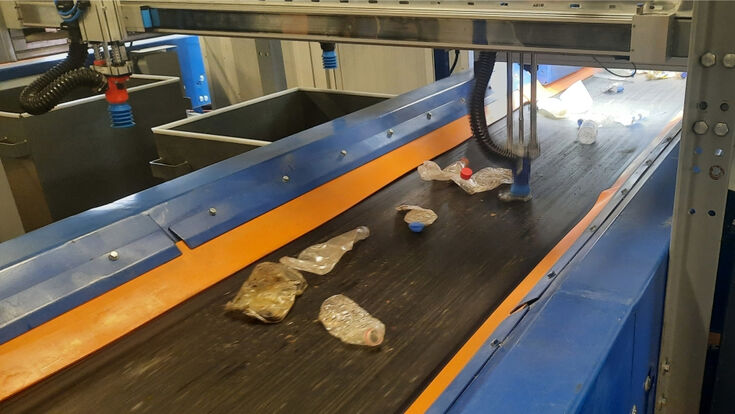Checking Out the Importance of Reclaim Waste in Sustainable Waste Management Initiatives
In the realm of sustainable waste monitoring, the concept of reclaiming waste becomes a vital component that requires attention and factor to consider. As we browse the intricacies of modern-day waste disposal techniques, the value of reclaiming waste reveals a nuanced approach to mitigating ecological impact and cultivating a more sustainable future. By examining the intricate interplay between waste reclamation and sustainable waste administration campaigns, we start to untangle a story that expands beyond conventional waste disposal approaches. With a lens that focuses on resource efficiency and ecological conservation, redeeming waste uses a compelling avenue for dealing with pushing environmental obstacles while paving the way for innovative solutions in the realm of waste monitoring.
Value of Reclaiming Waste
Why is redeeming waste essential in lasting waste monitoring practices? Reclaiming waste plays a critical function in lasting waste monitoring by lowering the amount of waste sent out to land fills, preserving all-natural resources, and lessening environmental influence.
Furthermore, redeeming waste cultivates a round economic situation where products are reused and recycled continually, promoting a more lasting and reliable use of resources. It additionally adds to the creation of environment-friendly work and financial development in the recycling and waste administration industry. By including waste improvement practices right into waste administration areas, companies and approaches can relocate towards a much more sustainable future, where waste is checked out not as a burden however as a beneficial resource.
Advantages for the Environment
In the realm of lasting waste management, the method of redeeming waste not only preserves natural deposits and lowers waste sent to land fills yet also generates substantial benefits for the atmosphere. By redeeming waste products, such as steels, glass, plastics, and natural matter, the ecological impact of resource removal and manufacturing is reduced (Industrial waste water treatment). This causes lowered energy consumption, minimized greenhouse gas exhausts, and reduced degrees of air and water pollution associated with drawing out resources
In addition, redeeming waste aids in the preservation of biodiversity and all-natural environments. It lowers the need for garbage dump area, consequently decreasing land destruction and environment devastation. In addition, the procedure of redeeming waste often involves recycling and repurposing materials, which subsequently decreases the need for brand-new items and the linked power and resources required for their manufacturing.
Contribution to Circular Economy
Playing a pivotal role in fostering sustainability and source performance, recovering waste makes a considerable contribution to the circular economy. By reestablishing thrown out products back into the production cycle, redeeming waste decreases the requirement for virgin resources, thereby reducing the total ecological impact of resource removal and usage. This process straightens with the concepts of the circular economic situation, which stresses maximizing the worth and utility of sources with closed-loop systems.
As a result, reclaiming waste assists to produce an extra lasting and resilient economic climate that is less reliant on limited sources and vulnerable to disturbances in the supply chain. Ultimately, by integrating waste reclamation practices into waste administration areas, campaigns and organizations can actively contribute to developing a more circular and regenerative economy.
Reducing Landfill Waste

Additionally, executing waste-to-energy technologies can aid in minimizing the volume of waste sent to land fills while likewise generating power. Motivating the use of reusable items, such as buying bags and water bottles, can dramatically reduce the amount of waste that inevitably winds up in landfills. Education and learning and awareness projects on correct waste disposal and the relevance of minimizing, reusing, and recycling can additionally play a crucial duty in minimizing landfill waste. By prioritizing the decrease of land fill waste, sustainable waste monitoring methods can be enhanced, causing a healthier atmosphere and economy.

Future Effects
Taking into consideration the fast advancements in modern technology and progressing environmental challenges, the future effects about his of sustainable waste management are positioned to transform existing methods. The adoption of cutting-edge innovations such as artificial knowledge, Internet of Points (IoT), and blockchain can significantly boost waste tracking, arranging, and recycling procedures. These improvements make it possible for real-time monitoring of waste streams, identification of recyclable products, and improved effectiveness in resource allotment.
In addition, the shift in the direction of a circular economic situation model, where sources are recycled, recycled, or upcycled, will certainly become progressively widespread. This transition not just reduces the reliance on virgin products but likewise decreases waste generation, leading to a much more lasting and environmentally pleasant waste management approach.
Furthermore, the combination of lasting waste monitoring practices right into more comprehensive sustainability agendas is expected to get traction. Industrial waste water treatment. Organizations and federal governments worldwide are recognizing the value of waste decrease and recycling in combating environment adjustment and promoting a circular economic climate. Therefore, regulations and policies supporting sustainable waste administration efforts are likely to end up being a lot more rigorous, driving sectors in the direction of even more eco-friendly practices
Final Thought
In final thought, the relevance of recovering waste in lasting waste administration efforts can not be overemphasized. By recovering waste, we can minimize environmental effect, contribute to a circular economy, and minimize landfill waste. This approach holds assurance for future implications in waste monitoring techniques, stressing the value of source effectiveness and environmental sustainability. Reclaiming waste is an essential step in the direction of producing an extra lasting and eco-friendly future.
By checking out the detailed interaction between waste improvement and sustainable waste management campaigns, we start to unwind a narrative that extends beyond conventional waste disposal techniques. Reclaiming waste plays a critical function in sustainable waste management by reducing the amount of waste sent to land fills, saving natural sources, and lessening environmental influence. By integrating waste improvement practices right into waste administration techniques, organizations and neighborhoods can move in the direction of a more lasting future, where waste is viewed not as a worry but as a beneficial resource.
